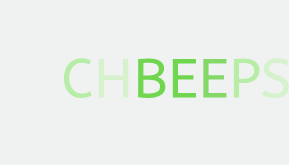In today’s interconnected world, web security is of paramount importance. As the digital landscape evolves, so do the threats that can compromise your online presence. Protecting your website and sensitive data is not only a priority but also an ongoing process. Here are five easy yet effective ways to bolster your web security:
1. Implement Strong Password Policies
Start with the basics – your passwords. Weak passwords are an open invitation for hackers to gain unauthorized access. Enforce a strong password policy that requires a combination of uppercase and lowercase letters, numbers, and special characters. Encourage your users to choose unique passwords and consider implementing multi-factor authentication (MFA) to add an extra layer of security.
2. Keep Software and Plugins Updated
Regularly updating your website’s software, content management system (CMS), and plugins is crucial. Developers often release updates to patch vulnerabilities and enhance security. Ignoring these updates can leave your website susceptible to attacks. Set up automatic updates whenever possible and stay vigilant about any security-related announcements from your CMS or plugin providers.
3. Use HTTPS and SSL Encryption
HTTPS and SSL encryption are essential for securing data transmitted between your website and users’ browsers. Not only does this encryption protect sensitive information, but it also boosts your website’s credibility in the eyes of visitors. Obtain an SSL certificate and ensure that your entire website is served over HTTPS to provide a secure browsing experience.
4. Regular Backups are a Must
Backing up your website regularly is a simple yet effective strategy to mitigate the impact of security breaches. In the unfortunate event of a successful attack, having recent backups allows you to restore your website to a previous, safe state. Store backups securely and test the restoration process periodically to ensure they are functional when needed.
5. Implement Web Application Firewalls (WAF)
A Web Application Firewall (WAF) is a security solution that filters and monitors incoming traffic to your website, identifying and blocking malicious requests before they reach your server. WAFs provide an additional layer of protection against various types of attacks, including SQL injection and cross-site scripting (XSS). Consider using a cloud-based WAF service for real-time protection and ease of setup.


In Conclusion
Web security is a continuous effort that demands attention and diligence. By implementing these five easy yet impactful measures, you can significantly enhance the security of your website and safeguard sensitive data. Remember that a proactive approach is key – stay informed about emerging threats, educate yourself and your team, and prioritize security as an integral part of your web development and maintenance process. With these strategies in place, you can enjoy a more secure online presence and offer peace of mind to your users.




